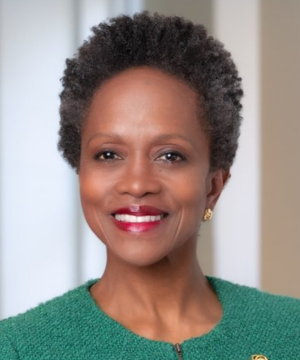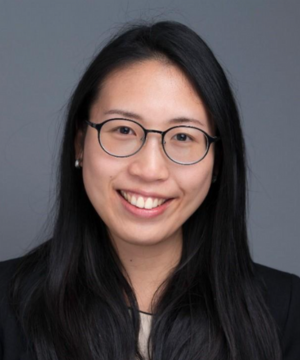Who runs the world? The modern world depends on networks of treaties and agreements, international organizations, and general commitment to a set of norms largely decided by leading Western powers in the aftermath of World War II. The United States, one of the architects of the current system, benefits from its role in existing institutions and has an interest in maintaining it. China is bringing different ideas to the table—ideas that could reshape the world as we know it.
Our new series, Faultlines, examines the strategic differences between the United States and China. The two nations differ in how they see economic, military, cultural, and governance issues, but was this always the case? By examining the view from both sides of the faultline we can piece together how we got here and where we’re going next.
Esther Brimmer and Olivia Cheung joined us in June and May 2025 (respectively) to explore why the United States and China clash so intensely on their visions for the future of global governance, and possibilities still open for a collaborative future.

Esther Brimmer
Esther Brimmer is the James H. Binger senior fellow in global governance at the Council on Foreign Relations (CFR). Brimmer’s career spans government, academia, and non-governmental organization leadership. Her primary areas of interest are governance of the global commons, international organizations, and transatlantic relations. Her U.S. government service includes leading U.S. policy in international organizations as the assistant secretary of state for international organization affairs from 2009 to 2013. She also served on the policy planning staff from 1999 to 2001. At CFR she is writing a book on the need for better governance mechanisms to manage expanding human activities in outer space, and she convenes the Council of Councils, which brings together twenty-seven international affairs research organizations from twenty-four countries for policy analysis and discussion.

Olivia Cheung
Dr Olivia Cheung (DPhil, Oxon) is Lecturer in Politics at the Department of European & International Studies, King’s College London, and China Fellow at the Centre for Security, Diplomacy and Strategy (CSDS), Vrije Universiteit Brussel. She is the author or co-author of three books, including The Political Thought of Xi Jinping, Factional-Ideological Conflicts in Chinese Politics, and a forthcoming title on China’s global strategy. She has also published many journal articles, book chapters, and book reviews on the politics and international relations of contemporary China. Her research has been featured in the Financial Times, The Economist, The New York Times, The Wall Street Journal, etc.